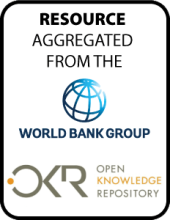/ library resources
Showing items 1 through 9 of 497.Lesotho is one of the poorest and most
unequal countries in the world. It is a small, mostly
mountainous, and largely rural country of about 2 million
people, completely surrounded by South Africa. The
The project will contribute to the intensification of rainfed agriculture, the expansion of agricultural exports, the alleviation of poverty, and improved land use.
This paper analyses the impacts of the Ethiopian Land Certification Program on productivity. It aims to identify how “technological gains” would measure up against the benefits from a resultant improvements in “technical efficiency”.
The note focuses on the global effects of land degradation, but emphasizes other important levels of land degradation: at the field level, it may result in reduced productivity; at the national level, it may cause flooding, and sedimentation; and, at the global level, it can contribute
While early attempts at land titling in Africa were unsuccessful, factors such as new legislation, low-cost methods, and increasing demand for land have generated renewed interest. This paper aims to assess the impacts of land registration in Ethiopia.
Identification of Land Quality Indicators (LQIs) is a key requirement of sustainable land management. They are required to assess, monitor, and evaluate changes in the quality of land resources and environmental impacts.
Land and property are usually the most important physical assets for poor households.
The poor in Mozambique survive off the land, but what would the consequences be if the land was privatised?
Malawi has pursued an agricultural-led development strategy since its independence in 1964.
Pagination
Land Library Search
Through our robust search engine, you can search for any item of the over 73,000 highly curated resources in the Land Library.
If you would like to find an overview of what is possible, feel free to peruse the Search Guide.





